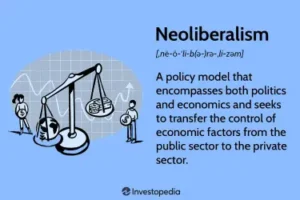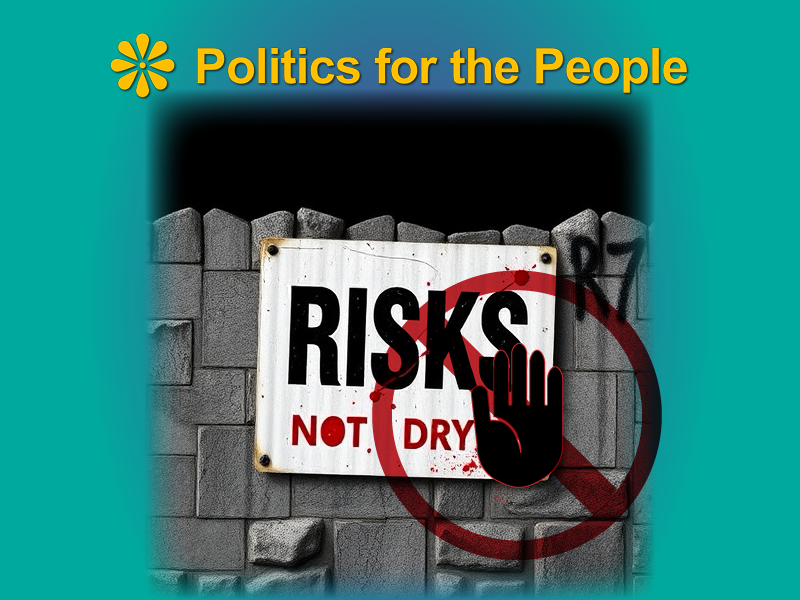Introduction to The Hidden Risks of Social Impact Investing
In the quest to marry financial performance with social good, social impact investing has appeared as a popular strategy among modern investors. Promising to generate social or environmental benefits alongside financial returns, this approach has attracted both acclaim and criticism. While it offers the allure of doing good while doing well, it’s imperative to scrutinize the neoliberal ideologies underpinning this strategy, which might harbor significant risks for society. This article unpacks the complex nature of social impact investing, revealing potential pitfalls that could undermine its well-intentioned goals.
The Neoliberal Underpinnings of Social Impact Investing
Market-Driven Solutions to Social Issues
Social impact investing is fundamentally influenced by neoliberal thought, which prioritizes market solutions for social problems. This ideology posits that the private sector can efficiently address societal challenges such as poverty, health, and education, traditionally areas of public sector intervention. By using capital markets, social impact investing proposes that investors can achieve a measurable social impact while also receiving a financial return, effectively using the allure of profitability to drive social change.
The Role of Neoliberalism in Shaping Investment

The neoliberal framework advocates for reduced governmental involvement in economic activities, promoting a laissez-faire market where private investments drive social welfare. This philosophy deeply influences social impact investing by framing it as an innovative solution that can more effectively deploy resources than governmental programs. However, this can shift focus from the need for robust public sector solutions, potentially leading to the privatization of gains while socializing the losses.
Dangerous Oversimplifications and Misallocations
Simplifying Complex Societal Issues
One critical critique of social impact investing is its tendency to oversimplify systemic social issues. Investments are often packaged as solutions to complex problems like inequality or environmental degradation, but they may only address the symptoms rather than the root causes. This reductionist approach can lead to initiatives that provide quick fixes rather than sustainable, long-term change, and often does not engage with the underlying structural issues that require more than just financial investment to rectify.
The Risk of Misallocating Resources
The attractiveness of generating financial returns while doing good can lead to a misallocation of resources. Investors may gravitate towards projects that offer the most visible and immediate returns, rather than those that are most effective in terms of social impact. This can divert funds from critical but less marketable social initiatives to more profitable, but potentially less impactful, investments. Consequently, essential areas needing attention and support might be neglected, as they do not offer appealing financial incentives.
Erosion of Public Responsibility and Other Unintended Consequences
Diminishing Public Sector Role
By promoting private solutions to public problems, social impact investing can undermine the role of the public sector, which is fundamentally accountable to the citizenry rather than to private investors. This shift can reduce the state’s involvement in critical areas such as health and education, relying instead on private capital which may not always align with the public good. The emphasis on profitability can overshadow the primary goal of public service, leading to reduced services and support for those who need them most.
Short-Term Gains Over Long-Term Solutions
Inherent in the neoliberal ideology is the preference for short-term gains, which can influence social impact investments to favour projects with quick returns. This short-termism overlooks the necessity for long-term investments in social infrastructure and programs that require time to mature but are crucial for sustainable development. Additionally, the focus on measurable outcomes can sideline more qualitative and transformative benefits that are harder to quantify but essential for profound societal change.
Conclusion
While social impact investing holds the promise of aligning investment dollars with social good, its reliance on neoliberal principles needs careful consideration of its broader implications. The potential for oversimplification of complex problems, misallocation of resources, erosion of public responsibility, and prioritization of short-term gains highlights the need for a balanced approach that includes robust public sector involvement. As we navigate the intersections of finance and social justice, it’s crucial to foster investments that truly contribute to sustainable and fair progress.
Question for Readers
What steps can we take to ensure that social impact investments truly help society and do not fall prey to the pitfalls of neoliberalism?
Call to Action
Reflect on the implications of social impact investing and engage in discussions to promote more fair and effective approaches. Share this article to spread awareness and encourage a deeper understanding of these critical issues.
References:
Social Impact Bonds Explained: https://youtu.be/otJVvuW35Yw
BlackRock Global Impact Fund (Aust): https://www.blackrock.com/au/individual/products/318819/blackrock-global-impact-fund-aust
Expanding firm efforts to address pressing social problems: https://www.blackrock.com/au/individual/about-us/our-commitment-to-social-impact
Impact Investing: An Introduction: https://www.rockpa.org/guide/impact-investing-introduction/
Evidence-Based Analysis of Social Impact Bonds for Homelessness: https://www.frontiersin.org/articles/10.3389/fpsyg.2022.823390/full
The Downside of Social Impact Bonds: https://ssir.org/articles/entry/the_downside_of_social_impact_bonds#
The New Gospel of Wealth: On Social Impact Bonds and the Privatization of Public Good: https://scholarcommons.sc.edu/cgi/viewcontent.cgi?article=2458&context=law_facpub
Making an impact: Why Chalmers is backing social investing: https://foyer.org.au/wp-content/uploads/2023/02/Why-Treasurer-Jim-Chalmers-is-backing-social-investing.pdf
Scott Morrison Endorses Social Impact Investing: http://www.nahpl.org.au/uploads/2/4/3/3/24335326/scott_morrison_endorses_social_impact_investing.pdf
Julia Gillard joins LeapFrog Investments: https://www.investordaily.com.au/markets/46016-julia-gillard-joins-leapfrog-investments

